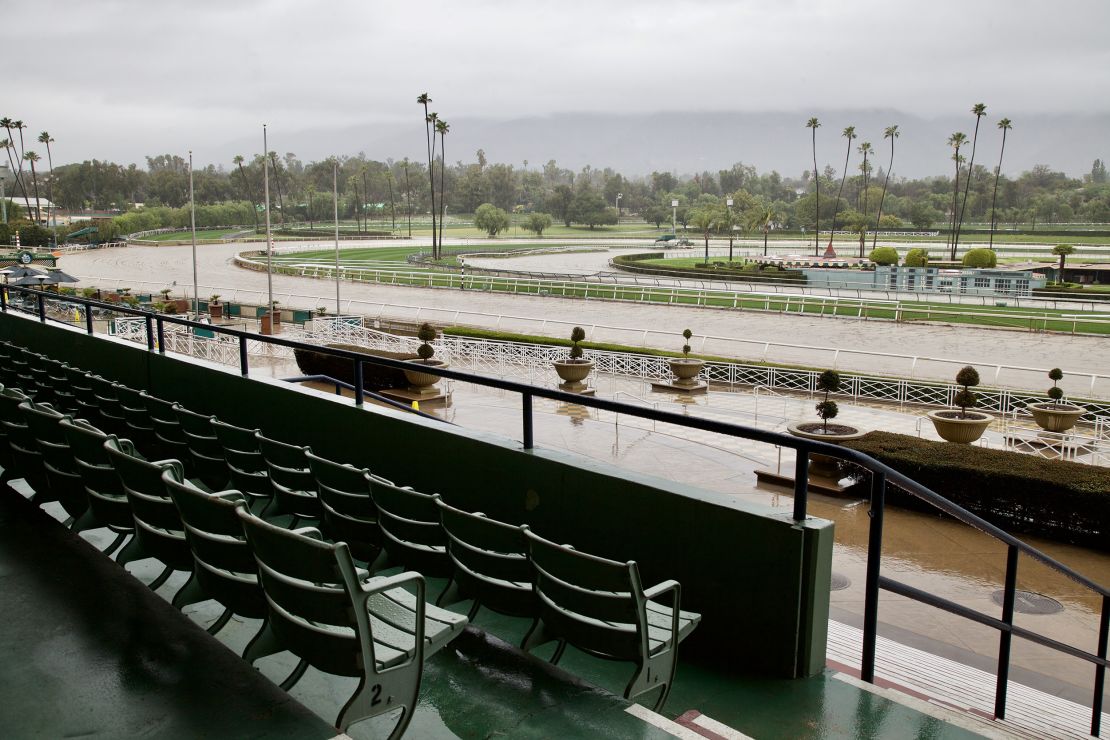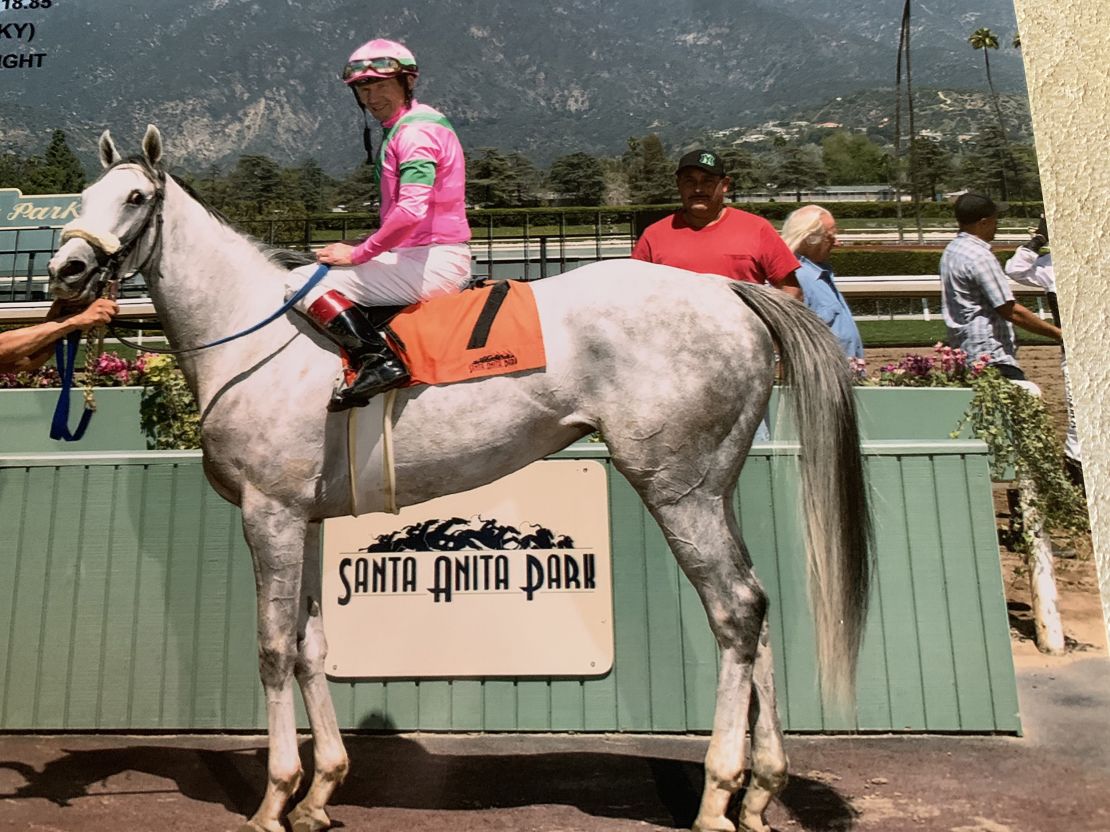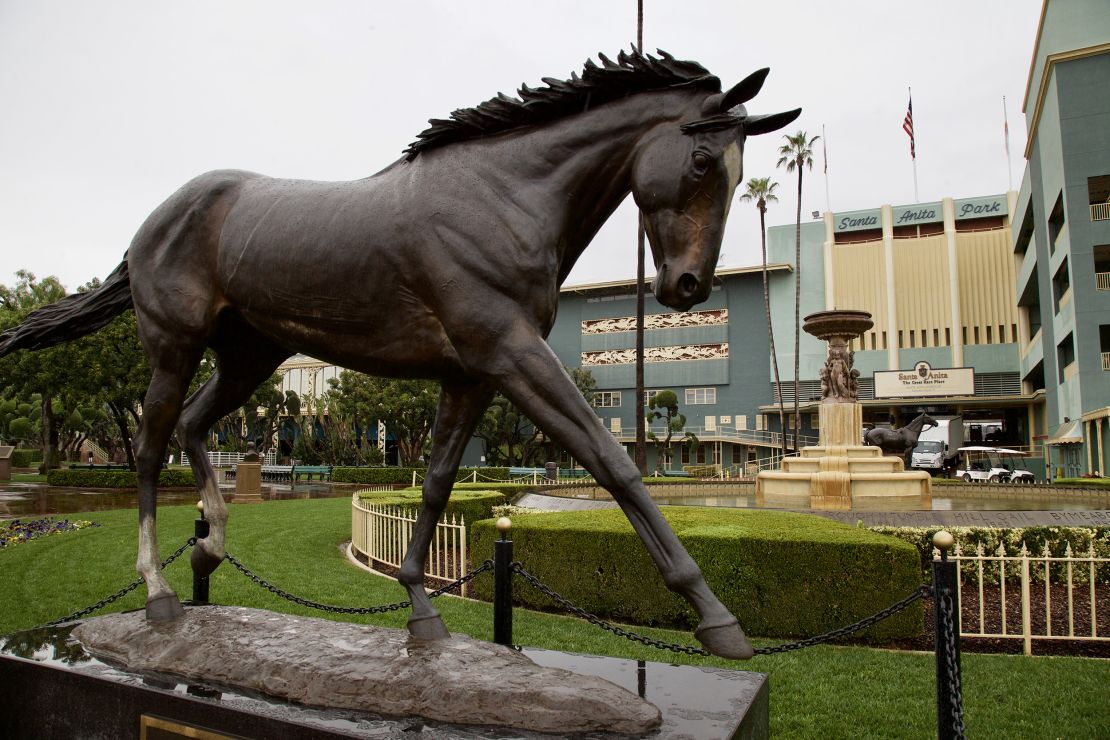The Los Angeles County District Attorney’s Office has assigned investigators to look into the recent deaths of 22 horses at Santa Anita Park, according to DA spokesman Greg Risling.
The investigators will work with the California Horse Racing Board (CHRB) as it examines the equine fatalities. Shawn Loehr, CHRB chief of enforcement, is leading the CHRB investigation.
“We are cooperating fully with the District Attorney’s Office. We will not be providing any additional details about the ongoing, confidential investigation,” Loehr said.
The CHRB will perform a necropsy on any horse that dies within a CHRB-licensed facility. Based upon the findings, a complaint may be filed for any violation of CHRB rules or California law, Loehr said.
The CHRB has referred cases to district attorneys for prosecution, Loehr said. The CHRB can and does use subpoena power when necessary, Loehr said. The Official Veterinarian, Safety Steward, Equine Medical Director and CHRB investigators all can be involved in this process.
Santa Anita Park spokesman Mike Willman said the park welcomes the DA’s investigation with the horse racing board “in an effort to solve these very serious issues.”
The racetrack dates back to 1907 and has been a prominent location in the racing community.
‘A new standard for racing’
On Thursday, The Stronach Group, which owns Santa Anita Park in Arcadia, announced that all race day medications will be banned at the park after another horse suffered a fatal injury. It was the 22nd horse death since December 26. Last year, 10 horses died at Santa Anita over the same period.
Tim Ritvo, chief operating officer of The Stronach Group, said there would be “a complete transformation of our racetracks in California,” including the total ban of all medication on race day.
“We know firsthand that owners, trainers and jockeys love and care deeply for their horses. We, too, love the horses and we’re making these changes to put the health and welfare of the horse and rider first,” Ritvo said.

Other new mandates include requiring transparency of all veterinary records and increasing out-of-competition testing and the time required for horses to be on-site before a race.
PETA thanked Santa Anita Park for the changes and for “standing up to all the trainers, veterinarians, and owners who have used any means – from the whip to the hypodermic syringe – to force injured or unift horses to run.”
“This groundbreaking plan, which PETA has pushed for, will not bring back the 22 horses who have died recently, but it will prevent the deaths of many more and will set a new standard for racing that means less suffering for thoroughbreds at this track,” PETA said in a statement.
Trainer says rain is a factor in horse deaths
A horse at Santa Anita Park suffered a fatal injury Thursday after a half-mile workout, Willman said. The 3-year-old filly, Princess Lili B, “must have taken a funny step,” causing her to break two ankles, trainer and owner David Bernstein told CNN affiliate KTLA. She had to be euthanized, he told the station.
Prior to that, the park had closed March 5 for evaluation, and officials indefinitely suspended racing after Debbie McAnally’s horse became the 21st to die this season at Santa Anita. The 4-year-old filly was euthanized after shattering her front leg on a training run.
The 1-mile main track reopened Monday and remains open for limited training.

After reopening this week, the park said training at the track was “restricted to joggers and gallopers,” referring to gaits for horses.
“Over the past four days, we’ve been able to do a great deal in terms of amending the soil and inspecting it,” Dennis Moore said in a statement. Moore has been retained as a consultant to inspect the track’s condition.
Many people connected with Santa Anita Park, however, said they believe rain is a factor. Southern California has been having its wettest winter in almost a decade.
“The ground gets too soft,” said Jim Cassidy, president of the Thoroughbred Trainers Association.

He said the track was to blame for a catastrophic injury that led a horse he trained to be put down.
In preparation for storms, a sealant is used to keep the surface from washing away, but Cassidy claims that once the rain is over, the track “is too hard.”
Moore has been reviewing soil samples and test data from Mick Peterson, a third-party consultant and director of the University of Kentucky’s Agricultural Equine Programs, the park said.
Bernstein told CNN affiliate KTLA he had no idea what could be causing the fatal injuries. The track is in “marvelous condition,” he said.
“I know they’ve done the best job they can do. They’ve hired a number of great experts,” he said. “I wouldn’t hesitate to go out tomorrow.”
CNN’s Cheri Mossburg, Stephane Becker and Sarah Moon contributed to this report.





